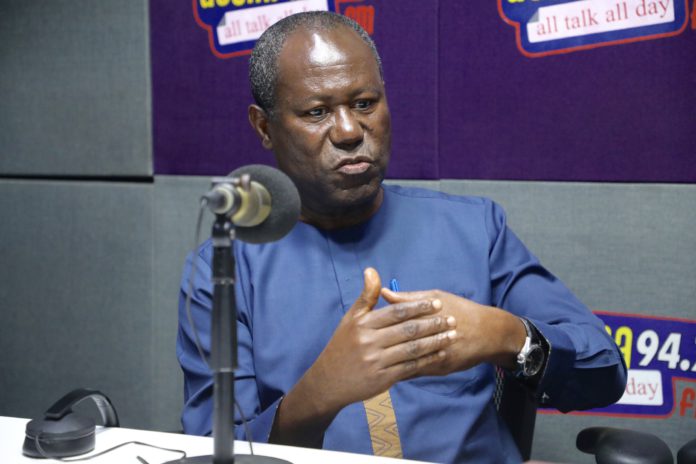Have you ever wondered why COCOBOD remains dependent on loans to purchase cocoa beans year after year?
The truth is, COCOBOD’s challenges run deep, and only a comprehensive overhaul can address them.
It’s a shame that many state-owned enterprises like COCOBOD have been prevented from operating as true businesses.
Successive governments have interfered by appointing political figures to management roles, often without the necessary technical or managerial expertise, to steer decisions that align with their interests.
The inability of COCOBOD to secure its usual annual syndicated loan has become one of the most intriguing narratives in recent times.
Due to concerns about the company’s creditworthiness and delays in bean deliveries from previous years, COCOBOD’s negotiations with their traditional external financiers for the typical $1.5 billion loan stalled for weeks.
The company then turned to cocoa traders directly for bridge financing, despite these traders sharing similar concerns but being hesitant to voice them publicly.
Suddenly, the narrative shifted, with the claim that COCOBOD would be purchasing the beans with “its own funds.”
Instead of addressing the root issues, the government appears more focused on controlling the narrative, prioritizing public relations over genuine solutions.
For the past 32 years, COCOBOD has relied on offshore borrowing to finance cocoa purchases through its syndication program.
However, the organization now claims to be shifting its strategy to reduce dependency on external funds.
On Tuesday, August 20, COCOBOD’s CEO, Joseph Boahen Aidoo, announced that this new approach is expected to save an estimated $150 million.
Critics have long questioned why COCOBOD must borrow and pay hefty interest just to buy cocoa.
Now that creditors have refused further lending, COCOBOD’s response—claiming it will find alternative ways to fund its purchases—has sparked backlash.
But if the company is finally doing what many have called for, why the outrage?
Should we continue borrowing to buy cocoa, or is this a necessary step toward financial independence?
There is nothing inherently wrong with the Bank of Ghana loaning COCOBOD funds (in cedis) to purchase beans in exchange for foreign exchange from the sales. However, strict safeguards are needed to prevent this from becoming another toxic loan burdening the central bank’s balance sheet.
Unfortunately, in this country, we often prioritize public relations over real work. Even when confronted with data, facts, and truths, politics tends to obscure the issues with rhetoric.
So, whose interests is COCOBOD really serving? It seems that the organization’s operations have not been benefiting Ghanaians as they should.
Ask any Ghanaian about the country’s resources, and cocoa will likely be the first answer. For years, it has been a significant revenue source for Ghana.
COCOBOD is legally mandated to purchase cocoa, sell it, and generate income for Ghana, while also providing incentives to farmers to increase yields and, consequently, revenue.
However, COCOBOD has been consistently reporting losses for nearly eight years, which ultimately burden the state, as taxpayers’ money is used to offset these losses.
Here is a table of COCOBOD’s profit and loss over the years:
| YEAR | PROFIT/LOSS |
| 2014/2015 | 152m (profit) |
| 2015/2016 | 199m (loss)
|
| 2016/2017 | 176m (loss) |
| 2017/2018 | 78m (loss) |
| 2018/2019 | 320m (loss) |
| 2019/2020 | 426m (loss) |
| 2020/2021 | 2.43bn (loss) |
| 2021/2022 | 3.8bn (loss) |
| 2022/2023 – | 2.3bn (profit) |
It’s important to note that the 2022/2023 profit figures were largely due to a debt exchange involving 7 billion cedis of cocoa bonds.
COCOBOD also has outstanding supply obligations from the last crop season that have yet to be fulfilled.
Is there any sound economic reason for COCOBOD’s absence from the Ghana Stock Exchange?
The challenges in the cocoa sector require deep, systemic reforms, not superficial fixes. Real change must begin with a serious overhaul of COCOBOD’s monopoly.
In a country where propaganda often substitutes for policy, it’s no wonder that our governments and political parties employ so many “communicators” but so few “policy analysts.”
This also suggests a troubling belief in the gullibility of the populace.
Given the current situation, one might ask: Is Joseph Boahen Aidoo the worst CEO COCOBOD has ever had?
This piece is by Shaderack Kofi Assan, lead producer of Adom FM’s morning show, Dwaso Nsem.


